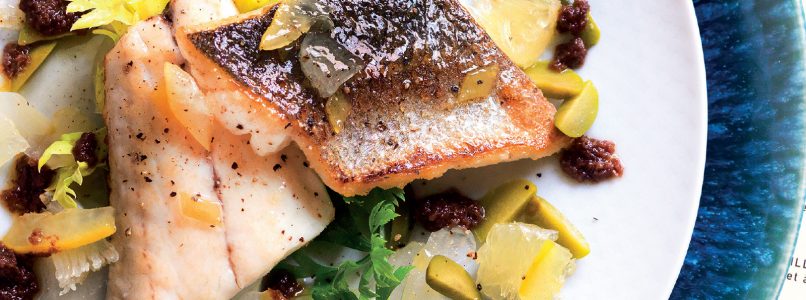"In Palestine, the olive tree represents everything. Life, peace, resistance, the bond with our land . Thanks to the cook and writer Fidaa Abuhamdiya for having told us about the importance of Palestinian oil and for having prepared the dish that absolutely celebrates it especially for us.
Palestinian olive oil
Across Palestine there are more than 12 million olive trees, particularly around Tulkarem, Nablus and Jenin. The main varieties are Suri, Nabali, Mallisi, Bari, Arbequino, Merhavia, K18 and others, many of which are ancient. From these olives are obtained both for the production of oil and for brine. But once this sector was much more active, so much so that the 285 mills present throughout the country. Then, even in this area, the Israeli occupation certainly did not help: many territories with olive trees were occupied or confiscated for the construction of farmhouses and, not infrequently, centenary trees were uprooted. Furthermore, in general it is always difficult if not impossible for Palestinians to move, so even just getting to your own ground often proves complex. And so, from being one of the largest olive oil producing countries, production in Palestine, of course, together with the whole state, entered a crisis. Yet, Palestinian oil, due to its quality, is among the most requested in the world: today there are about sixteen companies that sell it, both in the Gulf countries and in America. "Last year the production was very generous, reaching almost 40 thousand tons; while this year it was poorer ", Fidaa explains. "But Palestinian oil continues to be in great demand, especially by Palestinians living abroad, because it is an exceptional product, similar to the Italian one". In particular, the most famous, sought after and prized oil of the Holy Land is that of Beit Jala: "This oil is produced from centuries-old olive trees, which are more than 200 years old, in an area considered sacred from a religious point of view," continues Fidaa. "This is why it is a more expensive, exclusive oil that not everyone can afford". In Palestine there is a dish that celebrates oil par excellence and the moment of olive harvesting: the musakhan, where the main ingredient, in addition to olive oil in abundance, is sumac.
What is sumac
Sumac is a perennial tree, widespread throughout the Mediterranean, which produces red fruits similar to berries. Usually the harvest takes place from July to September; then these berries are left to dry in the sun and ground, from which one is obtained red powder which is often used throughout Middle Eastern cuisine. The taste is a little sour, perfect for preparing many dishes, both vegetarian and meat or fish. In Palestine it is used very often, for example, in musakhan where it is a fundamental ingredient, for the color and flavor it releases. Plus, sumac is one of the best antioxidants there is. So, we just have to tell you what the preparation of this dish consists of, which is nothing more than roasted bread with chicken, onions and, of course, olive oil and sumac.
The musakhan recipe
This dish celebrates olive oil in Palestine, when people gather to celebrate the end of the harvest. It is prepared only in this period, Fidaa explains, then with the arrival of winter it is no longer done. «We meet with family or friends and we all sit together in a circle around the table waiting for the musakhan. When it arrives it is a party, a gift, because in addition to goodness, the emotional value of being together and the special atmosphere that is created around this dish is important ", explains Fidaa," which is always served on a round plate. to close the circle, in fact . We thank Amira, Bader, Sahar, Inas, Ali, Ahmad, Julia Amani and Fidaa who gathered for "La Cucina Italiana" to prepare musakhan and reveal the recipe, in order to bring a bit of Palestine to your tables.
Ingredients
1 whole chicken cut into pieces
4 medium white onions
1 large glass of olive oil
5 tablespoons of sumac
1 tablespoon of ground cardamom
1 lemon
1 black pepper
salt to taste
Arabic bread pita or tabun
almonds or pine nuts to garnish to taste
Method
Wash the chicken pieces well and leave them to marinate for at least 3 hours with olive oil, ground cardamom, a chopped onion, lemon wedges, black pepper and salt.
Arrange them in a pan and bake in the oven for about 40 minutes at 180 ° -200 °.
Brown the onions cut into small pieces in plenty of olive oil.
Season the Arab bread with the onion cooking oil, put the fried onion on the bread, add the sumac, transfer it to a baking tray, and roast it in the oven for about 5 minutes. It will be necessary to make more trays so as not to overlap the bread. Then arrange the roasted chicken with the fried onion, sprinkle with sumac and garnish with fried almonds. Finally, musakhan is usually accompanied with frike soup.
In Palestine it is said: "We will stay here as long as there are olive trees and zaatars."

